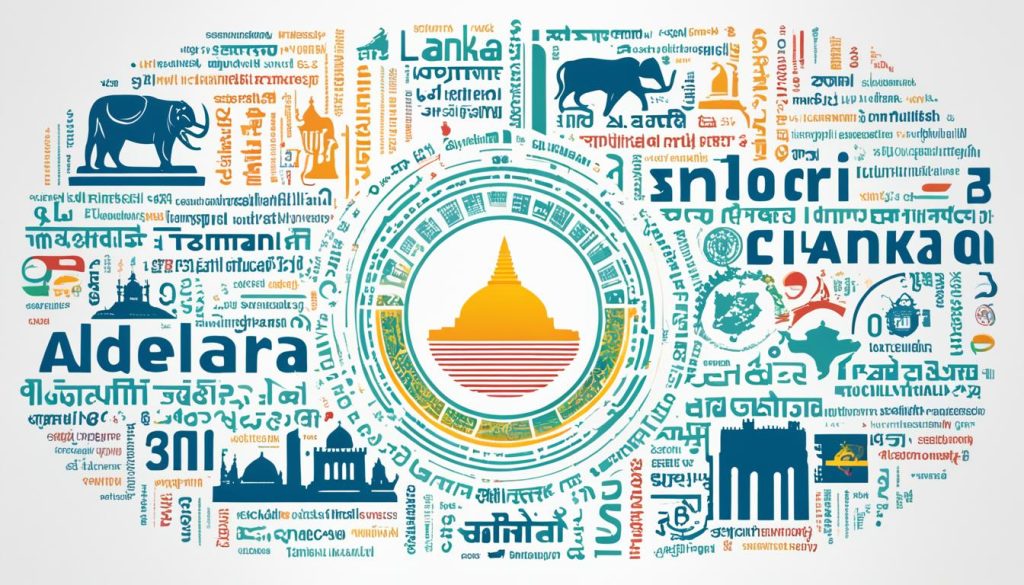
The march towards a digital future is undeniable, and Sri Lanka is taking a significant leap forward with its commitment to developing a SL digital identity system. Drawing inspiration from India’s successful Aadhaar program, Senior Presidential Advisor Sagala Ratnayake has announced the nation’s plans to introduce a SL Aadhaar equivalent. This ambitious digital enterprise will define a new era for Sri Lanka’s national identification landscape.
Envisioned to be operational within two years, this initiative will provide every citizen with a SL unique identification number, complementing the existing national identity card number. The integration of a SL biometric authentication system aims to reinforce security measures, streamlining transactions in trade and improving access to government services such as the Aswesuma social welfare scheme. It represents a pivotal step in the SL government identity project, with the allure of fostering a seamless, secure, and efficient interface between the state, its citizens, and the economy.
This strategically designed SL digital identity not only promises to enhance day-to-day convenience but also stands as a testament to Sri Lanka’s resolve to embrace technological innovation for societal betterment. The nation prepares to transition into this new paradigm with caution, ensuring the system’s integrity and the populace’s readiness for a significant cultural shift in personal identification and commerce facilitation.
An Overview of SL’s New Digital Identity Ecosystem
As Sri Lanka ventures towards an ambitious digital future, it sets its sights on replicating the success of India’s Aadhaar system with its own SL digital identity solution. This monumental transformation is poised to reimagine how citizens interact with both government services and private commerce. The upcoming SL digital id system is expected to usher in a new epoch of technological integration, demonstrating Sri Lanka’s commitment to digital advancement and economic resilience.
The Conception and Global Influence of India’s Aadhaar System
The blueprint of Sri Lanka’s digital identity strategy finds its roots in the trailblazing SL Aadhaar implementation initiated by India over a decade ago. With a modest investment of $13 million, India embarked on a visionary journey to overhaul its identification paradigm, ultimately achieving a secure and scalable system. This cutting-edge SL Aadhaar technology now encompasses an impressive 94.2% of India’s population, setting a global benchmark in efficient subsidy distribution and financial transactions.
Projected Benefits for Sri Lankan Trade and Commerce
The ripples of implementing the SL digital identity system are expected to significantly boost Sri Lanka’s trade and commerce sectors. By creating a secure and trustworthy mechanism for transactions, businesses and consumers alike will engage in economic activities with newfound confidence and efficiency, spurred by the robust SL Aadhaar verification processes.
Access to Social Welfare: The Aswesuma Scheme and Digital ID
Equally significant, the new digital ID initiative promises to revolutionize the way Sri Lankans access social services. Through the integration of an advanced digital system, the Aswesuma social welfare scheme is anticipated to become more accessible, simplifying the process for beneficiaries to receive support. This digital leap foresees a strengthened safety net that leverages technology for social good, showcasing the progressive vision of Sri Lanka’s digital governance.
Technological Blueprint of Sri Lanka’s Aadhaar Equivalent
Embarking on a path that India has paved with its Aadhaar system, Sri Lanka is poised to unveil its own digital identity framework. This SL digital identity model will incorporate complex technological aspects designed to meet the unique challenges and requirements of Sri Lankan society. It will feature a fusion of traditional identification methods supplemented by cutting-edge digital solutions to forge an SL e-governance solution unlike any previously seen in the region.
Adaptation of Aadhaar’s Secure and Scalable Infrastructure
To maintain authenticity and security at the heart of this digital transition, the infrastructure for the SL Aadhaar digital ID will mirror the secure and scalable system perfected by its Indian counterpart. It will lay the groundwork for a robust SL citizen database, intended to store and protect sensitive information while remaining accessible for a multitude of civic and financial applications. The aim is to construct a reliable platform that ensures the privacy of individual citizens while enabling the efficient operation of state mechanisms.
Integration of Biometric Authentication and Citizen Database
Integral to the new system is the integration of biometric authentication. Biometrics will play a crucial role in maintaining the integrity of the SL Aadhaar system, by providing a foolproof method for verifying individual identities. The upcoming biometric records, which will include features like fingerprints and iris scans, are set to be linked to the comprehensive SL citizen database, paving the way for a seamless interface between the population and the various e-services they will access.
Unique Identification Number: A Dual System with National ID
Amidst this technological overhaul, the establishment of a unique identification number emerges as a cornerstone strategy. This ID number will run parallel with existing national identity card numbers, forming a dual-system that brings an additional layer of verification and security. The significance of this SL digital identity model lies not only in its potential to minimize identity fraud but also in its ability to bolster the totality of governmental and commercial interactions across the Sri Lankan digital landscape.





More Stories
Anna-Marie Ondaatje to grace Asian Games for Sri Lanka
President Names Jayamin to BOC in Key Appointment
AMW Distributes Yamalube Lubricants in Sri Lanka